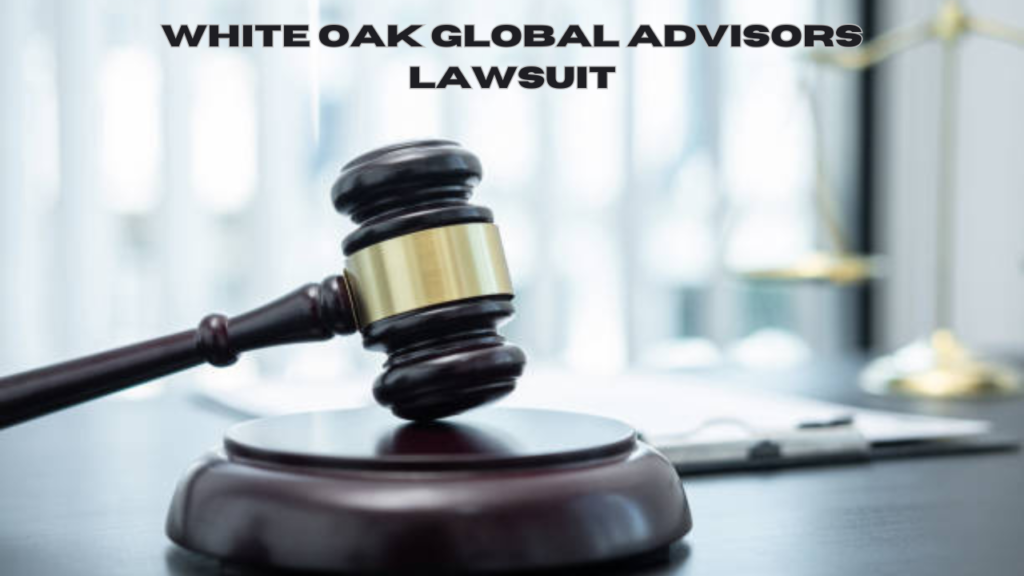The White Oak Global Advisors lawsuit has captured significant attention in the financial and legal sectors, primarily due to its far-reaching implications for fiduciary responsibility and pension fund management. This case centers around serious allegations brought by the trustees of the New York State Nurses Association Pension Plan against White Oak Global Advisors, a prominent private credit and alternative investment firm. Understanding the details of this lawsuit provides insight into the complexities of managing pension funds and the legal responsibilities of financial advisors.
Background of the Case
The origins of the White Oak Global Advisors lawsuit lie in the alleged mismanagement of assets within the New York State Nurses Association Pension Plan. The pension fund trustees accused White Oak Global Advisors of engaging in prohibited transactions under the Employee Retirement Income Security Act (ERISA), a federal law designed to protect the interests of employee benefit plan participants and their beneficiaries. These accusations included claims of secret negotiations over a top executive role and other activities that allegedly compromised the integrity of the fund’s management.

Key Allegations and Legal Findings
The lawsuit’s central allegations revolved around breaches of fiduciary duty, which is financial advisors’ obligation to act in their clients’ best interests. According to the pension plan trustees, White Oak Global Advisors failed to uphold these duties, leading to significant financial losses for the fund. An arbitrator reviewing the case found clear evidence of prohibited transactions under ERISA.
Among the most striking outcomes of the arbitration was the award of $96 million to the pension fund, which included fees and accrued interest. This decision underscored the seriousness of the alleged violations and highlighted the financial ramifications of failing to adhere to ERISA’s stringent requirements. Subsequently, a federal judge largely upheld the arbitration award, increasing the total payment obligation for White Oak Global Advisors to over $100 million.
Implications for Pension Funds
The White Oak Global Advisors lawsuit raises critical questions about the oversight and governance of pension funds. Trustees and plan participants rely heavily on financial advisors to manage their assets responsibly and transparently. This case is a stark reminder of the consequences of neglecting or violating fiduciary duties.
One key takeaway is the importance of rigorous compliance with ERISA regulations. Financial institutions managing employee benefit plans must ensure that all transactions are conducted with complete transparency and in the best interest of the participants. Any deviation from these standards risks legal repercussions and undermines the trust placed in the financial system.
Broader Legal and Financial Impacts
The fallout from the White Oak Global Advisors lawsuit extends beyond the immediate parties involved. It has set a precedent for addressing fiduciary breaches in the legal system. It has heightened awareness of the need for stringent oversight in managing pension funds. Financial advisors and institutions will likely face increased scrutiny to ensure compliance with federal laws and ethical standards.
Moreover, this case highlights the role of arbitration in resolving complex financial disputes. The arbitrator’s findings and subsequent federal court decision demonstrate the effectiveness of arbitration as a mechanism for addressing breaches of fiduciary duty. However, it also raises questions about the adequacy of existing safeguards to prevent such violations in the first place.
Lessons for Financial Advisors and Trustees
For financial advisors, the White Oak Global Advisors lawsuit is a cautionary tale about the necessity of adhering to fiduciary responsibilities. Maintaining transparency, avoiding conflicts of interest, and prioritizing clients’ welfare are ethical imperatives and legal requirements under ERISA.
Trustees and pension fund participants can also draw valuable lessons from this case. Vigilance in monitoring the activities of financial advisors and ensuring that governance practices are robust can help prevent similar issues. It is essential for trustees to demand accountability and seek expert advice when evaluating the performance and practices of fund managers.
The White Oak Global Advisors lawsuit is a significant legal and financial case with implications that resonate across the investment management and pension fund sectors. By examining the allegations, arbitration findings, and federal court decisions, stakeholders can better understand the responsibilities and risks associated with fiduciary roles.

Also Read: Kelly Bates Asks Supporters Not to Take Out Their Anger on NBC 10
Final Reviews
As this case continues to be discussed and analyzed, it underscores the importance of trust, transparency, and adherence to legal standards in financial management. The lessons from this lawsuit call on financial advisors, trustees, and regulators to work collectively to ensure the integrity and sustainability of pension funds and other investment vehicles.











